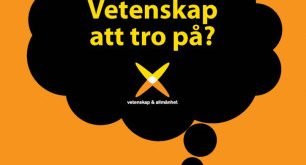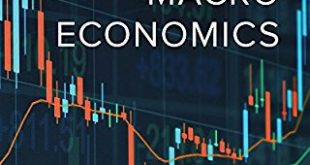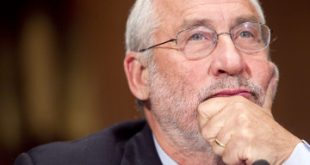Wiehe ska va president [embedded content] Kom inte och säg att en cover aldrig kan vara bättre än originalet! Advertisements
Read More »Hur återskapar vi förtroendet för nationalekonomin?
Nationalekonomin som vetenskap har världen över förlorat otroligt mycket i prestige och status under senare år. Inte minst på grund av dess oförmåga att se den senaste finansiella krisen i antågande och på grund av dess avsaknad av konstruktiva och hållbara förslag på att ta oss ur krisen. Hur återskapar vi förtroendet för nationalekonomin? Fem förändringar är helt avgörande. (1) Sluta låtsas som om vi har exakta och riktiga svar på allting. För det har vi inte. Vi bygger...
Read More »Conventional economics — a severe form of brain damage
Conventional economics — a severe form of brain damage [embedded content] I’m extremely fond of scientists like David Suzuki. With razor-sharp intellects they immediately go for the essentials. They have no time for bullshit. And neither should we. Advertisements
Read More »The Conqueror
[embedded content]Pelle the Conqueror — based on Martin Andersen Nexö’s epic masterpiece — is a stunningly beautiful and painful movie. Bille August directed. Stefan Nilsson wrote the music. Max von Sydow made the performance of his life. And it breaks my heart every time I watch it. Advertisements
Read More »Mainstream textbooks — full of utter nonsense!
Mainstream textbooks — full of utter nonsense! The other day yours truly was sent a copy of the new edition of Chad Jones intermediate textbook Macroeconomics (4th ed, W W Norton, 2018). There’s much in the book I like, e. g. Jones’ combining of more traditional short-run macroeconomic analysis with an accessible coverage of the Romer model — the foundation of modern growth theory — and DSGE business cycle models. Unfortunately it also contains some utter...
Read More »Economics — the triumph of ideology over science
Economics — the triumph of ideology over science Research shows not only that individuals sometimes act differently than standard economic theories predict, but that they do so regularly, systematically, and in ways that can be understood and interpreted through alternative hypotheses, competing with those utilised by orthodox economists. To most market participants – and, indeed, ordinary observers – this does not seem like big news … In fact, this...
Read More »Nationalekonomins verkliga ansikte
Yours truly lyssnade för ett tag sedan på ett radioprogram där man diskuterade huruvida nationalekonomin verkligen är en vetenskap. För att ‘försvara’ nationalekonomin hade man bjudit in en av de få genuint vidsynta och tvärvetenskapligt orienterade ekonomiprofessorer vi har i landet. Vi hade så vitt jag kan bedöma — efter 40 års umgänge med svenska nationalekonomer — fått en mer rättvis bild av vad det svenska nationalekonomi-etablissemanget står för om man istället låtit den...
Read More »Cholesky decomposition (student stuff)
Cholesky decomposition (student stuff) [embedded content] Advertisements
Read More »How the laws of physics lie
How the laws of physics lie Melvyn Bragg and guests — Nancy Cartwright, Mark Buchanan and Frank Close — discuss if there are any Laws of Nature. And if so — are they really ‘facts of life’? http://downloads.bbc.co.uk/podcasts/radio4/iots/iots_20001019-0900a.mp3 Advertisements
Read More »Political correctness is hopelessly incorrect
Political correctness is hopelessly incorrect [embedded content] Advertisements
Read More » Lars P. Syll
Lars P. Syll




